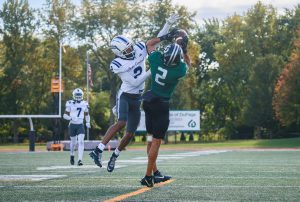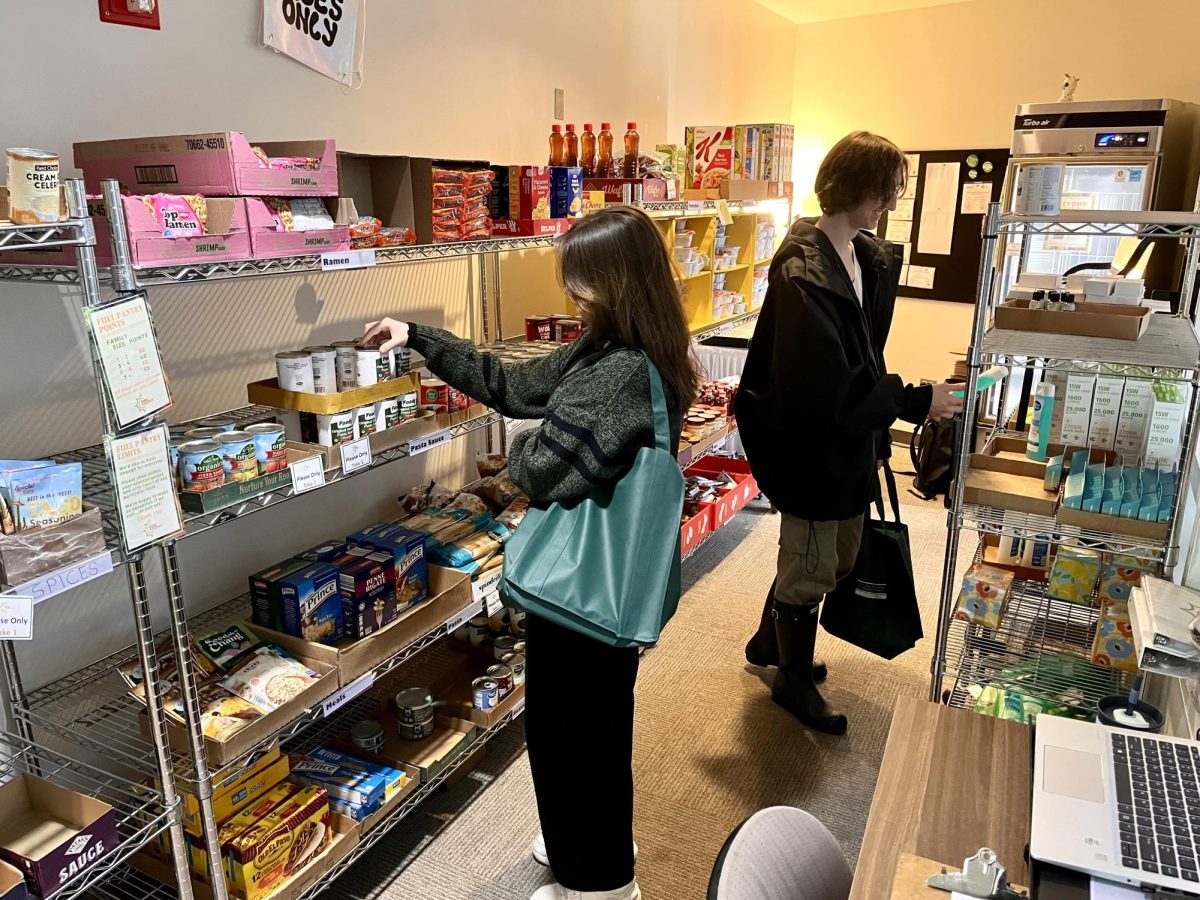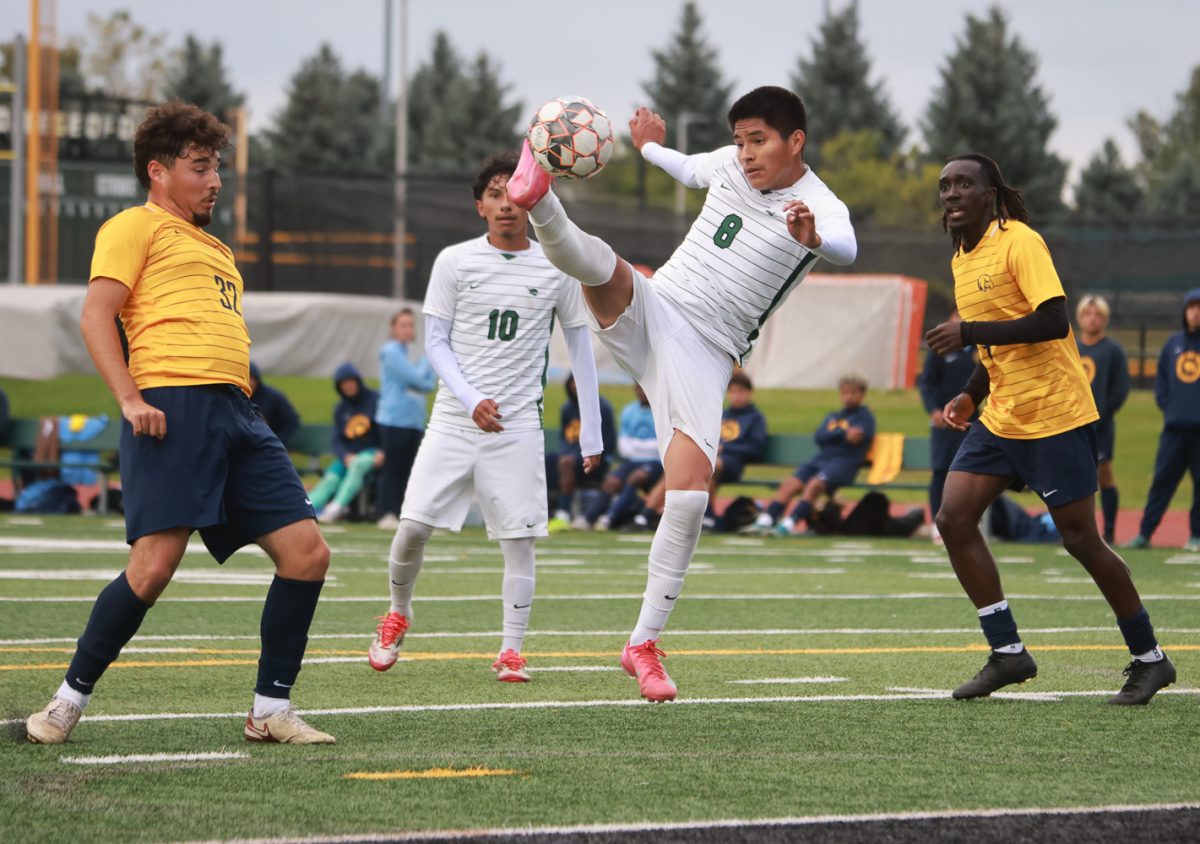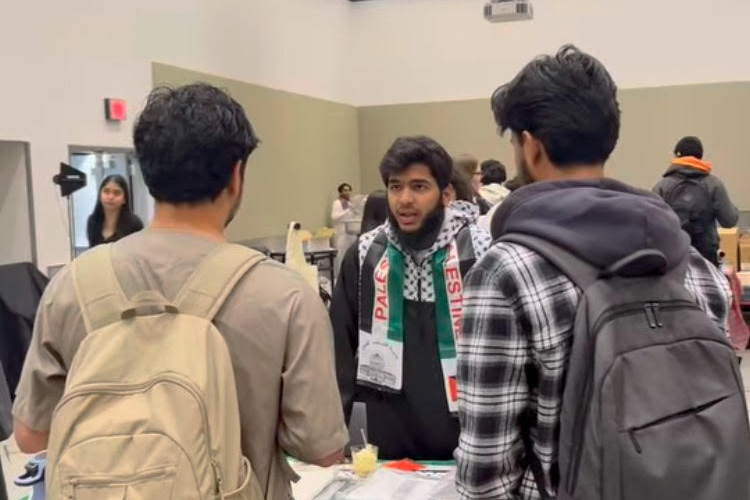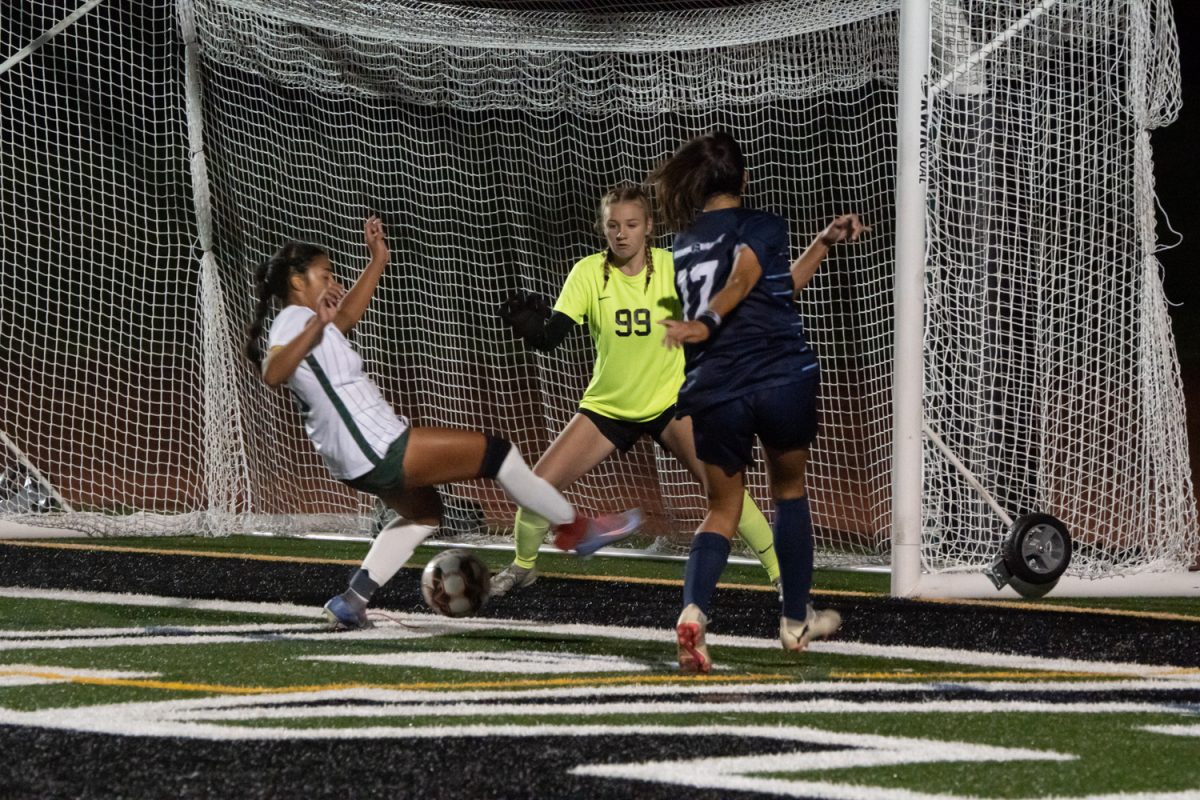COD President: “Very remote” chance of class cancellations
The College of DuPage Faculty Association and community supporters protest before the Aug. 15 board of trustees meeting (photo by: Alison Pfaff)
September 12, 2019
Following the first scheduled federal mediation, College of DuPage Faculty Association’s electric doomsday clock is still counting the hours since their contract expired.
While the board of trustees and the faculty association have come to an impasse, students are wondering: Will teachers strike and our classes be suspended or cancelled?
COD President Brian Caputo said, while he respects students’ concerns, an improved and positive dialogue between the negotiating teams encourages him the college is a long way from a potential strike.
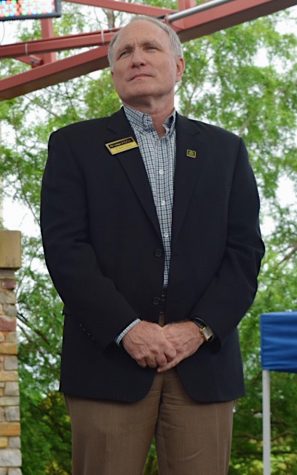
“We do not want the faculty to strike, and we know the faculty is also committed to student success,” said Caputo. “We still haven’t gone through all the proposals, and we’re encouraged by the presence of the mediator and where the negotiations are going.”
Trying to qualm students’ trepidation of lost refunds and disrupted college plans, Caputo said the administration does not expect to ever have to cancel classes.
“We will make every effort to ensure classes are completed,” said Caputo. “If by some very remote circumstance a class has to be cancelled, we would make sure the student is made whole as appropriate. The student is not going to be penalized for having taken a class and not completing it because it was our fault.”
Caputo said in the event of a strike, classes taught by adjuncts [55%] would continue, while the disruption of full-time faculty classes would depend on the length of the strike.
While some members of the faculty have accused the polarized board of acting on behalf of boosting their political platforms and making anti-union headlines, Caputo said the impasse is really about the institution’s expenditures running over its revenues. The college has seen declined enrollment in recent years, and the next couple of years show a continued budget deficit.
The school plans to continue constraining costs and raising tuition by a dollar each year to help close the deficit. Caputo also suggested the board consider altering the current 1% annual rise in property tax levy to increase near the consumer price index (CPI) which measures price inflation. For the 12-month period ending in July, the CPI was 1.8%.
“If we have increases in faculty or any other salaries above the CPI, the math simply doesn’t work,” said Caputo. “It’s not a catastrophic problem because a lot of things could change, but we can’t turn a blind-eye. That’s why in these negotiations we are looking for a reasonable increase.”
Caputo believes the potential strike will not have any significant impact on future enrollment. School officials project a 3% enrollment decline in the next couple of years followed by a gradual increase.
Because of the college’s $187 million fund balance, Caputo doesn’t see potential class refunds damaging the schools’ balance in the long term. He said the fund is designed for contingencies and unexpected situations like decreases in enrollment or delayed state allocation, however, the school would much rather use the funds for one-time costs, capital projects and maintenance items.
The college has never experienced a strike before. However, federal mediation was needed during 2012 contract negotiations.
Caputo said the administration felt the faculty association rushed in asking for mediation given all the proposals hadn’t been worked through.
“We were perplexed about the need for a mediator, but it obviously means a lot to the faculty. So we gave it a try,” said Caputo. “It’s been helpful having another person in the room to act as an honest broker and facilitate discussion.”
The faculty association’s proposal for mediation was July 30. One day following the next negotiating session on Aug. 13, the board agreed. Some students have expressed frustration over the lack of progress considering classes are well underway and negotiations began way back in March. The first of four more scheduled mediated sessions is Sept. 17.
Members of the faculty association have expressed outrage over the board’s decision to post over 100 part-time, 12-week positions to replace faculty in the event of a strike. Caputo said because they were hearing strike from the very beginning of negotiations, the decision was an appropriate measure.
“Certain faculty members voiced an interest in striking to our governing board,” said Caputo. “The board turned to us as administrators and asked how we plan to prepare. This was not something we originally planned to do.”
STICKING POINTS: PAY STRUCTURE
Currently, the faculty pay structure is charted with lanes based on level of education [beginning with a Master’s degree in “lane A” progressing to a Ph.D. in “lane E”] and steps based on years of service. Caputo said the administration wants to create a new evaluation and experience component to the structure.
“Many faculty members were already receiving increases, so the notion they had pay freezes is not really the case,” said Caputo. “Only when you move to the top of your lane are you done getting increases unless some other adjustment is made. This is where things broke down.”
According to Caputo, each step resulted in an average 2.45 to 2.56% increase. (*The administration later issued a statement saying the actual range of step raises was 2.56 to 5.17%.)
“If you don’t have these lanes, over the few years what has happened is everyone has received an increase to the CPI plus 0.5%,” said Caputo. “This year’s total was 2.4% for everybody without these steps. Some older boards decided not to pay an employee group more than this 2.4%. The methodology includes at the beginning of the year adding up all the salaries and multiplying it by the 2.4 factor, then spreading it across all the lanes. Those that are still in steps are going to take a fair share of the pool because they are in higher percentages.”
Caputo said in 2016 the board offered the faculty association CPI plus 0.5%, and the association elected to reject the increases.
Under the Administration’s plan, new professors start on average no lower than A-5 ($60,000) or higher depending on their level of education and the market.
Caputo said benefits aren’t really a significant part of their compensation piece and will be negotiated at the end of the process.
STICKING POINTS: FACULTY EVALUATIONS
Many faculty members have expressed skepticism of the intentions and the necessity of classroom evaluations.
According to COD Provost Mark Curtis-Chavez, the administration is following the recommendation for implementing classroom evaluations by the American Association of University Professors, who deem such evaluations as the best way to grade faculty performance. The evaluations would be carried out by the college deans, who were all previously tenured faculty.
“The faculty who are tenured were evaluated by the deans during their pre-tenure process,” said Curtis-Chavez. “If they were qualified to evaluate them then, why would they not be qualified to evaluate the same faculty now? The deans will learn some things from some of our best faculty and make those suggestions to other teachers.”
Some faculty have balked at that idea because some deans have not taught in an actual classroom in many years, nor are they necessarily teaching experts in every field they oversee as a dean. Nonetheless, Curtis-Chavez said the implementation of similar evaluations is quite common with other colleges. When asked to provide specific colleges where dean-led evaluations are used, the administration failed to cite any.
Caputo said evaluations will involve how engaging the professor is and how well they are organized. They will also be evaluated on classroom management skills and what methodologies they use.
“The objective is not to find bad evaluations,” said Caputo. “We are after continually improving classroom instruction. If someone were severely deficient, we would try to address that and help them improve.”
Caputo said a standard evaluation instrument must be developed, and the faculty will play a major role in designing the form.
MESSAGE TO THE STUDENTS
Caputo said because of the positive tones of recent negotiations, students should feel assured and secure in the negotiating teams finding a resolution.
“The mere fact we are going to do everything possible to make sure these classes are completed as they are currently scheduled says a lot about what this institution is all about,” said Caputo. “We are all about making sure current and prospective students know that by coming here they will always receive what they need to succeed.”








